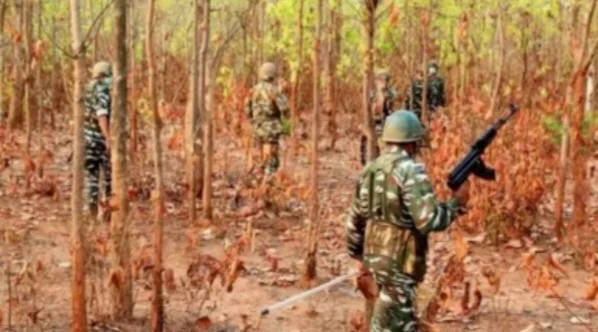Democratic Front Against Operation Green Hunt condemns alleged extrajudicial killings in Chhattisgarh
The recent encounter in Indravati National Park, Bijapur district, in which 31 Maoists were killed, has brought the total Maoist casualties in Chhattisgarh this year to 81. Following this incident, Union Home Minister Amit Shah reiterated the government’s objective of eliminating "Left-wing extremism" in India by March 2026. This was the second-largest reported Maoist casualty in a single security operation, following the deaths of 38 Maoists in Narayanpur’s Thulthuli on October 3, 2024.
Leaders of the Democratic Front Against Operation Green Hunt, including Dr. Parminder, Prof. A.K. Maleri, and Buta Singh Mehmoodpur, have criticized the killings, describing them as extrajudicial executions under the guise of encounters. They argue that armed conflicts such as the Maoist insurgency arise from longstanding social and economic inequalities.
The Democratic Front contends that such operations impact not only Maoist forces but also the local tribal population, who are often caught in the crossfire. They argue that these actions align with broader economic and political strategies that prioritize corporate development over indigenous rights. The organization claims that since January 2024, more than 350 extrajudicial killings have been carried out under ‘Operation Kagaar’ in the Bastar region.
According to the Democratic Front, security operations in tribal regions have led to increased militarization, with numerous security camps established across Bastar. They allege that such measures contribute to unlawful detentions, displacement, and human rights violations. The group also challenges the narrative that Maoist activities hinder infrastructure development, claiming that state policies and military strategies have played a role in limiting access to education and resources in these regions.
Union Home Minister Amit Shah has reiterated the government’s goal of eradicating Maoism by March 31, 2026. The Democratic Front argues that the approach primarily focuses on military action rather than political resolution. They claim that official narratives and media reports often emphasize counter-insurgency success while overlooking broader socio-economic grievances.
The organization has called for an end to alleged extrajudicial killings, drone strikes, and increased security presence in tribal areas. They also demand recognition of indigenous land rights and an end to what they see as the suppression of mass movements and dissenting voices. They advocate for nationwide democratic protests to highlight the impact of security operations on tribal communities and to push for policy changes.
---
*Freelance journalist



Comments